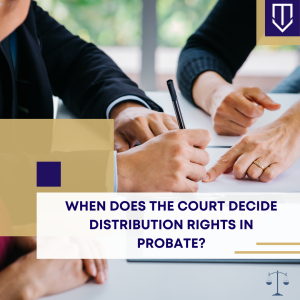 When a person passes away and leaves behind the property, their property must first pass through the probate process before being passed down to family members and loved ones. Essentially, the probate process is a legal process that determines the execution of the estate of someone who has passed away. Moreover, during the probate process, the court appoints an executor or an administrator to administer the deceased’s estate. Therefore, probate property refers to any assets or property left behind by a deceased person that passes through the probate process.
When a person passes away and leaves behind the property, their property must first pass through the probate process before being passed down to family members and loved ones. Essentially, the probate process is a legal process that determines the execution of the estate of someone who has passed away. Moreover, during the probate process, the court appoints an executor or an administrator to administer the deceased’s estate. Therefore, probate property refers to any assets or property left behind by a deceased person that passes through the probate process.
It is possible to sell or buy probate property while it is still in the probate process. However, the sale of probate property is different from a standard sale of real property, and there are court and statutory procedures that need to be taken into consideration. At the Underwood Law Firm, our attorneys are more than familiar with the sale of probate property and the requirements that follow.
 California Partition Law Blog
California Partition Law Blog


 For family members of a deceased loved one, the most important part of probate proceedings is the final distribution of the estate. This occurs once the estate’s debts and obligations have been satisfied, and it serves to more or less end the probate of the estate.
For family members of a deceased loved one, the most important part of probate proceedings is the final distribution of the estate. This occurs once the estate’s debts and obligations have been satisfied, and it serves to more or less end the probate of the estate.